
- Home
- Photo Galleries
- Portrait Photography
- Landscape Photography
- Street Photography
- China
- Ethiopia
- India
- Holy Ganges
- Varanasi
- Varanasi Ganga Aarti
- Varanasi, Manikarnika Ghat
- Varanasi Streets & Alleys
- Varanasi Demolition
- Varanasi Fruit Market
- Sarnath
- Brick Kilns
- Tamil Nadu, Chennai & Mamallapuram
- Tamil Nadu, Fort Tirumayam & Madurai
- Tamil Nadu, Tiruvannamalai & Thanjavur
- Kerala, Munnar
- Kerala, Peryiar
- Kerala, Backwaters
- Kerala, Kochi
- Kazakhstan
- Myanmar
- Senegal
- Uzbekistan
- Travel Blog
- China
- Ethiopia
- India
- Tamil Nadu & Kerala
- Varanasi
- Whato to do in Varanasi
- Varanasi Life along the Ghats
- Varanasi Death along the Ghats
- Varanasi Ganga Aarti Ceremony
- Varanasi demolished to honor Shiva
- Varanasi Fruit Market
- “Varanasi, A Journey into the Infinite”
- Sarnath
- All about River Ganges
- Holy Shit. All about Indian Cow Dung
- Clean India Project
- Brick factories
- Tilaka, pundra, bindi: what is the mark on Indian foreheads?
- Kazakhstan
- Mongolia
- Ulaanbaatar, the coldest capital in the world
- What to do in Ulaanbaatar
- Chinggis Khan Museum, 6 floors of Mongolian history
- Gorkhi-Terelj National Park and Bodgkhan Natural Reserve
- Altai Mountains, Things to do in Olgii and Sagsai
- Living with the Eagle Hunters
- Sagsai Eagle Festival
- Navrus Festival
- Xöömej, Mongolian throat singing
- Mongolian Food
- Myanmar
- Senegal
- Uzbekistan
- Latest Posts
- Photography Blog
- About
- Prints
“There should be somewhere on earth a place which no nation could claim as its own, where all human beings of goodwill who have a sincere aspiration could live freely as citizens of the world and obey one single authority, that of the supreme Truth.”
-The Mother
Share with your friends:
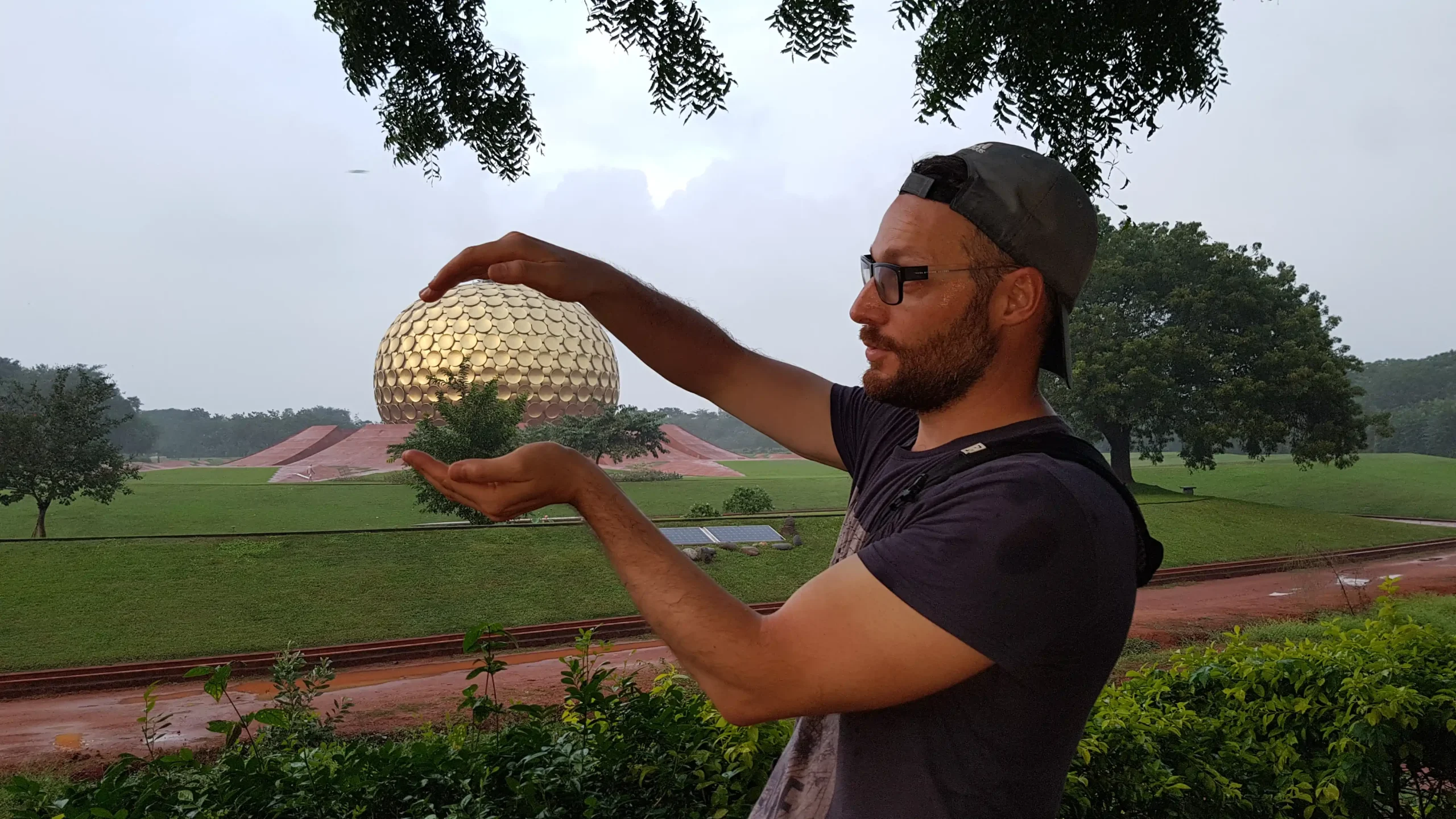
Tamil Nadu, with its mystical fervor, has so far shown me two of its typical aspects: Mamallapuram temples, entirely carved into the rock, and those in Tiruvannamalai, with their characteristic colorful Gopuram used as access doors.
But Tamil Nadu would not be the same without its many ashrams, yoga centers, meditation courses and hippie communities living in search of a slow and conscious life. That’s why I decided to stop in Auroville, the most famous hippie town in Tamil Nadu.
Welcome to Auroville, a hippie dream come true
Just 10 km from Pondicherry, the most European city of Tamil Nadu, is a thriving hippie community that could not be further from Western cultural models. Although, to be honest, Auroville is the main reason why travelers visit Pondicherry.
Auroville means “Dawn City” and is an eco-village founded in 1968 by a yoga master, Sri Aurobindo, along with Mirra Alfassa, a French woman and spiritual guru who everyone calls “The Mother”. It is especially because of her, and her powerful charismatic power, that this incredible international community exists.
About 4,000 people from more than 50 different countries now live in Auroville. They are mostly foreigners who came to India during the Cold War years looking for a peaceful place to live, although today there are many young people born and raised here.
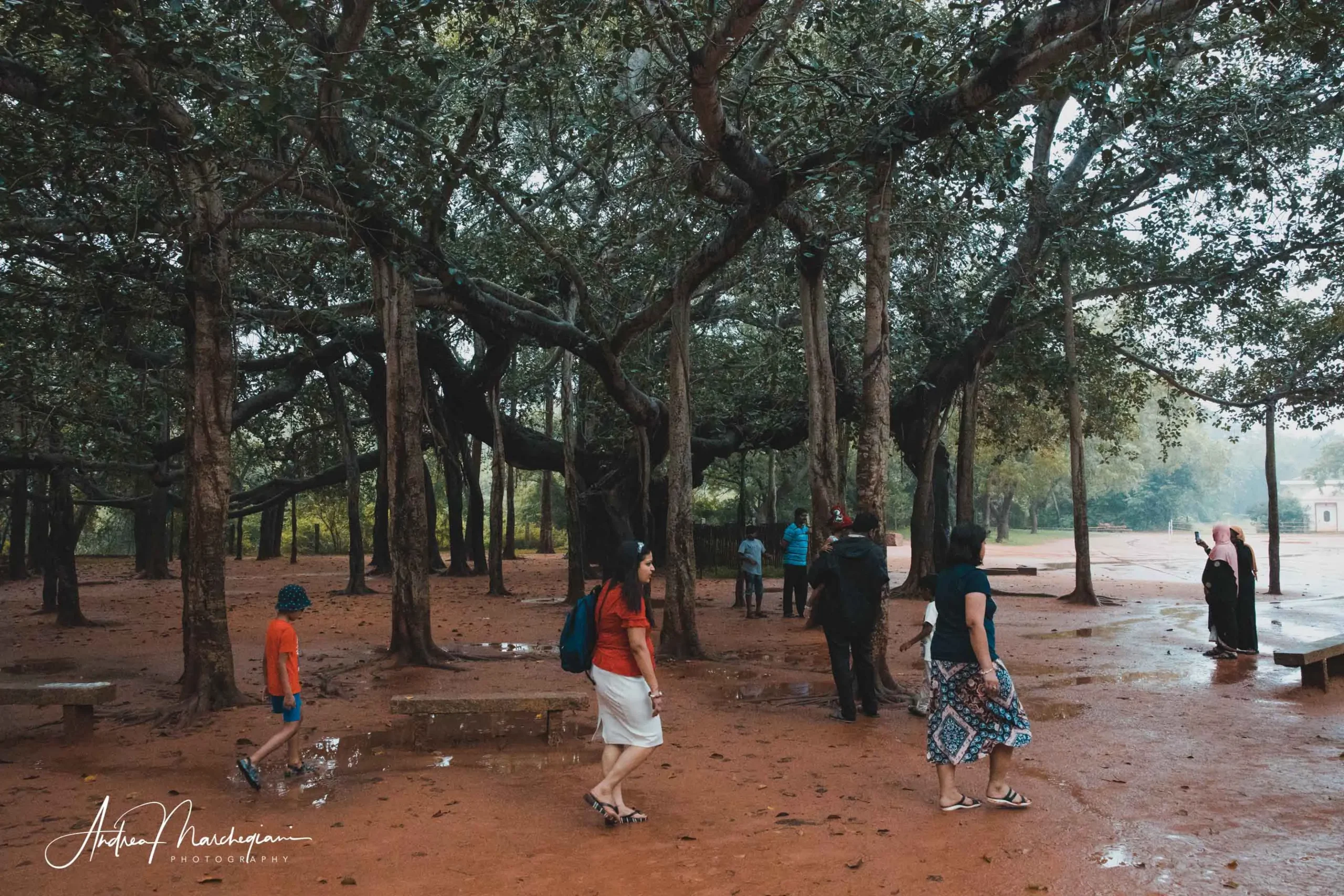
Auroville does not use money
Auroville is about 20 square kilometers and includes 5 neighboring villages. Inside there are schools and hospitals, sports areas, restaurants and craft shops.
The rules of the community are perhaps utopian but really fascinating: the residents of Auroville in fact receive a standard wage, regardless of the work they do. A doctor and a yoga teacher earn the same amount, about 170 dollars a month. In return, they receive food, accommodation, electricity, education and health service. Personal expenses are recorded on a card, so the circulation of money is completely absent.
Auroville generates more work
Life in Auroville is based on eco-sustainability, slowness, the practice of yoga and meditation. There are no laws to abide by here, and yet the crime rate is 0%. A small community based on mutual trust.
But the added value of this reality is not only spiritual: Auroville carries out work projects ranging from organic farming to computer science, through renewable energy, and gives work to about 5,000 people who live in nearby villages.
Why you should visit Auroville
I visit the ashram paying an entrance fee that actually allows me to see very little of the daily life that takes place there.
The large park in the center of the city is not open to visitors, nor are residential districts, schools, health facilities, community premises. I mean, if you’re not a resident’s guest, you’re basically not gonna see anything.
While I understand the reason for all this reserve, I wonder if it makes sense to let tourists in. So, visit Auroville if you are willing to help this little village support its finances and, on a more spiritual level, to have actual proof that such a wonderful place really exists. It is not only the fantasy of some utopian, but a dream come true, and an invitation to the world to follow its example.
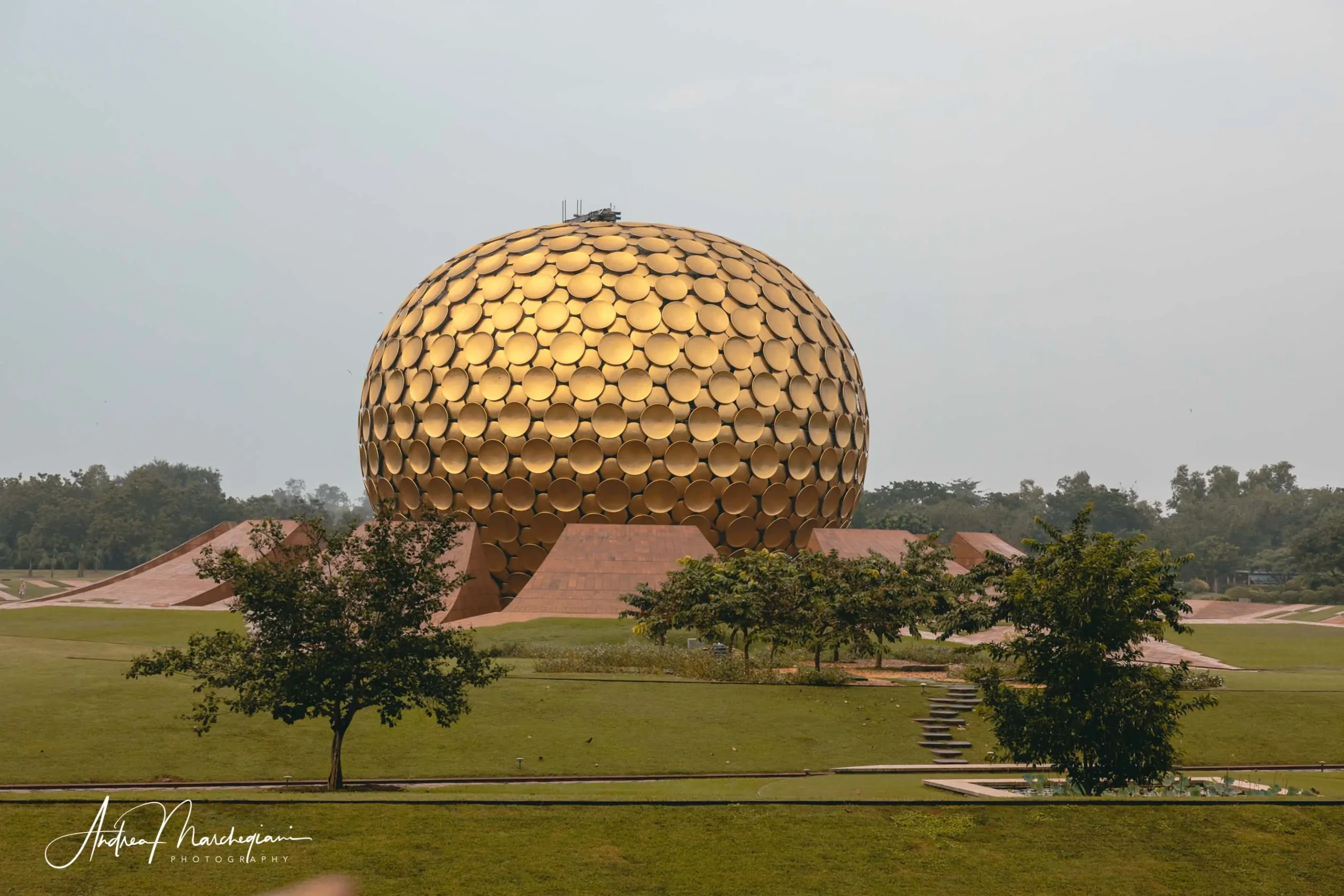
Matrimandir, the soul of the city
As soon as I arrive, they invite me to get on a bus that takes me straight to the main attraction of the center: the Matrimandir, the spiritual center of the city, that I can photograph only from afar. It is a gigantic golden dome, inaccessible to visitors, where residents can go to meditate in absolute silence. It is not allowed to pray, it is not a place you go to connect with God, but to listen to yourself. His spherical form does not represent the perfection of God, but the human aspiration to become divine himself.
The Matrimandir is located in the center of a large park, divided into sectors, each recalling a spiritual truth. In 1968, the UNESCO Youth Conference was held there and young people from 128 countries brought a sample of land from their country and placed it in the park, inside a large white urn, as a symbol of unity.
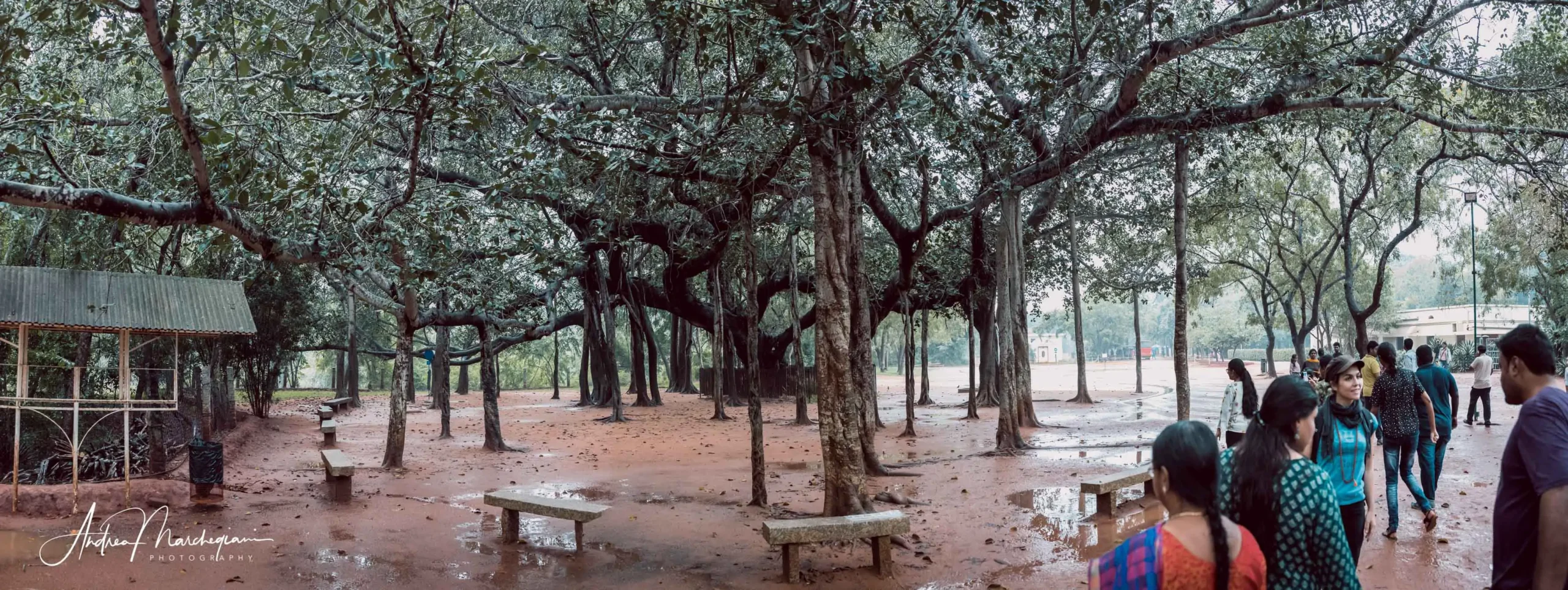
On the way back, a giant ficus tree draws my attention. The branches seem to extend endlessly, projecting large roots to the ground. It makes me think about how much we can grow as individuals, if we do not set limits nor accept those suggested by our spiritually poor society. Are we really more than our bodily wraps? Do we really have infinite potential just waiting to come to light?
Aurobindo and the Mother founded Auroville to help men who are discouraged in politics and in the consumistic model to realize the aspiration towards a world where there is acceptance towards all human beings, regardless of their race, gender, culture and religious diversity. Today 4,000 people call home Auroville, and live free from prejudice. It would be worth taking note!
Share with your friends:
More from India Travel Blog
Leave A Reply Cancel reply
This site uses Akismet to reduce spam. Learn how your comment data is processed.



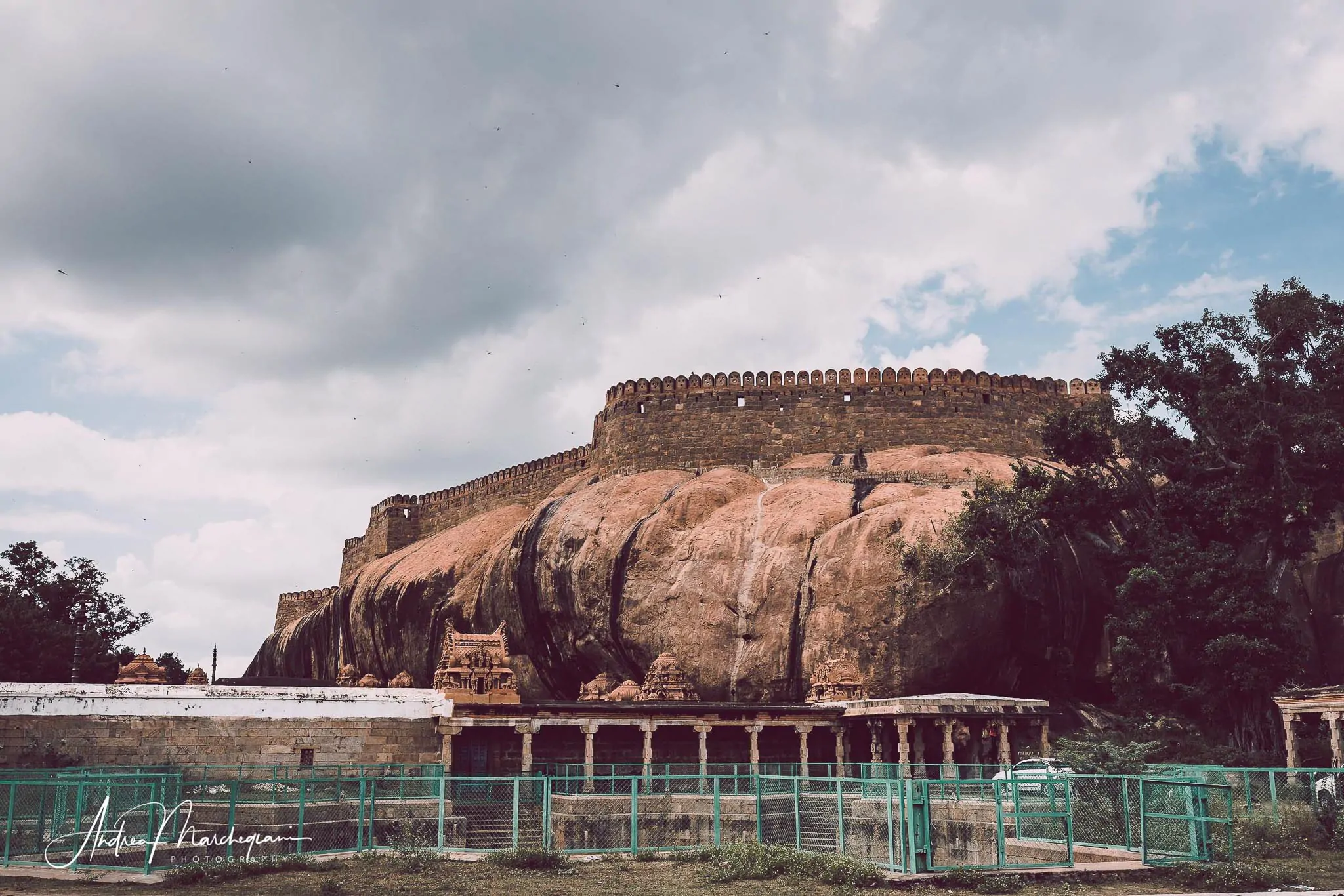
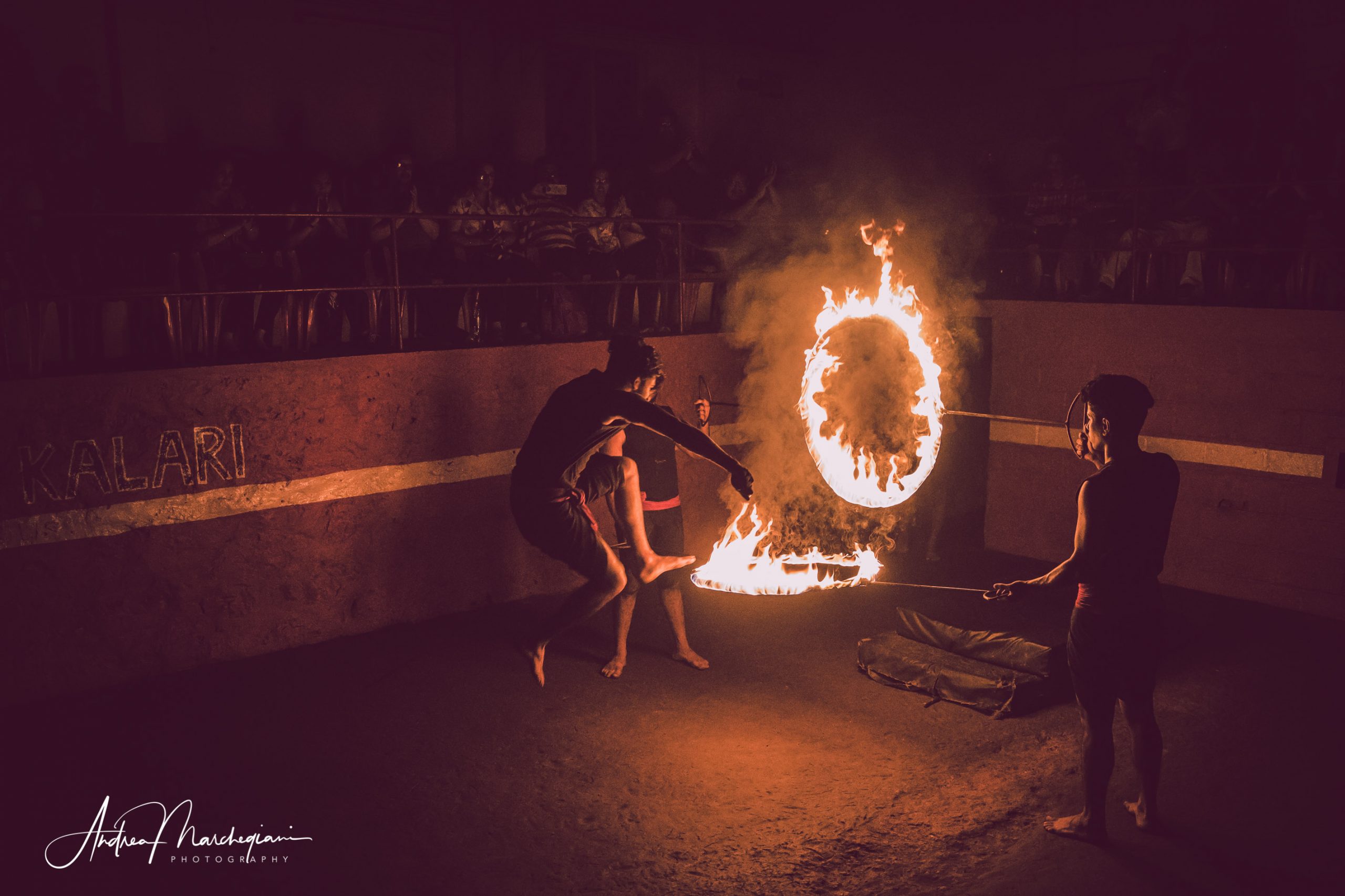

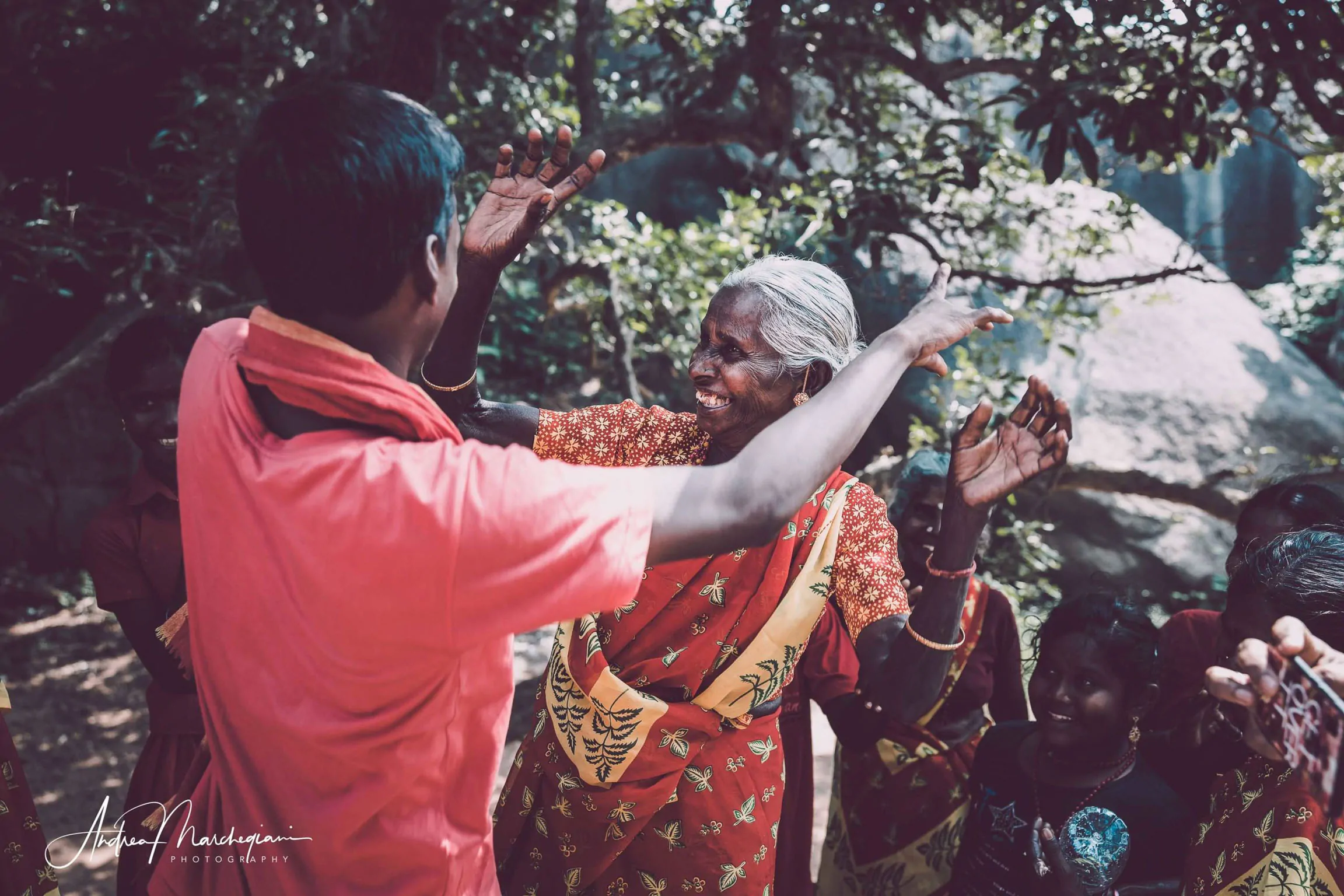
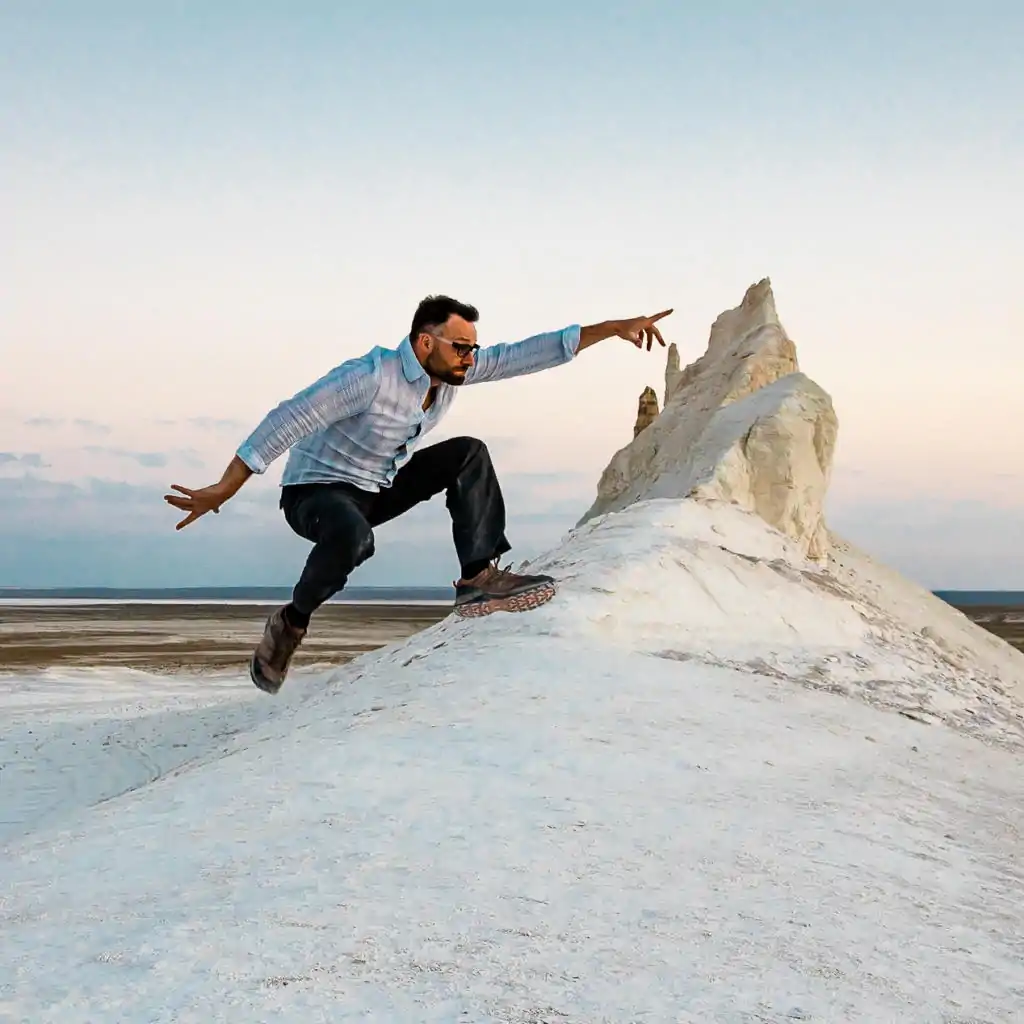

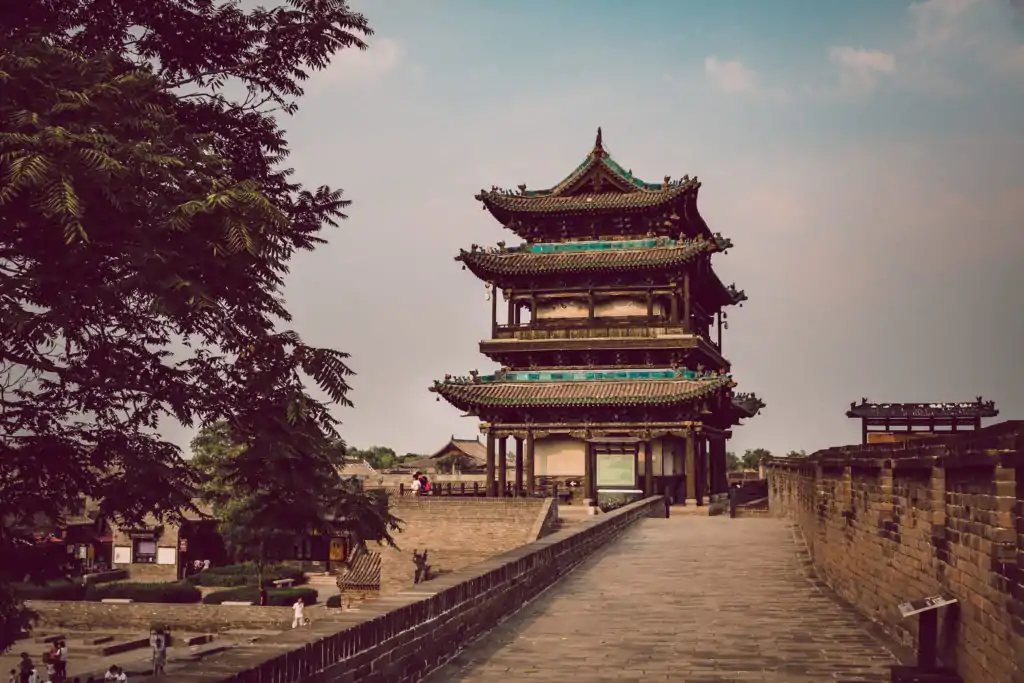

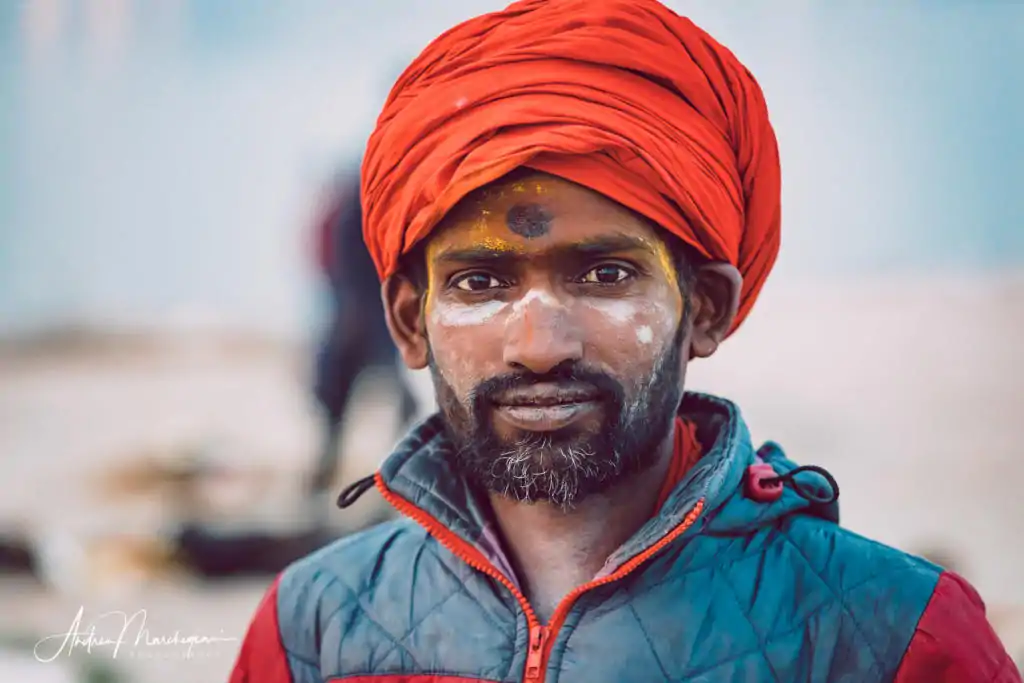
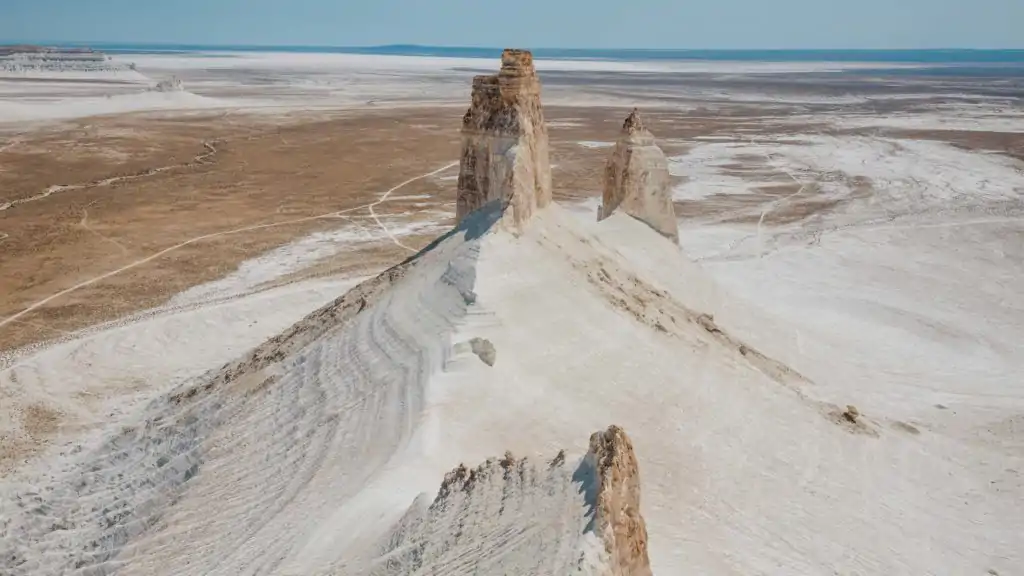

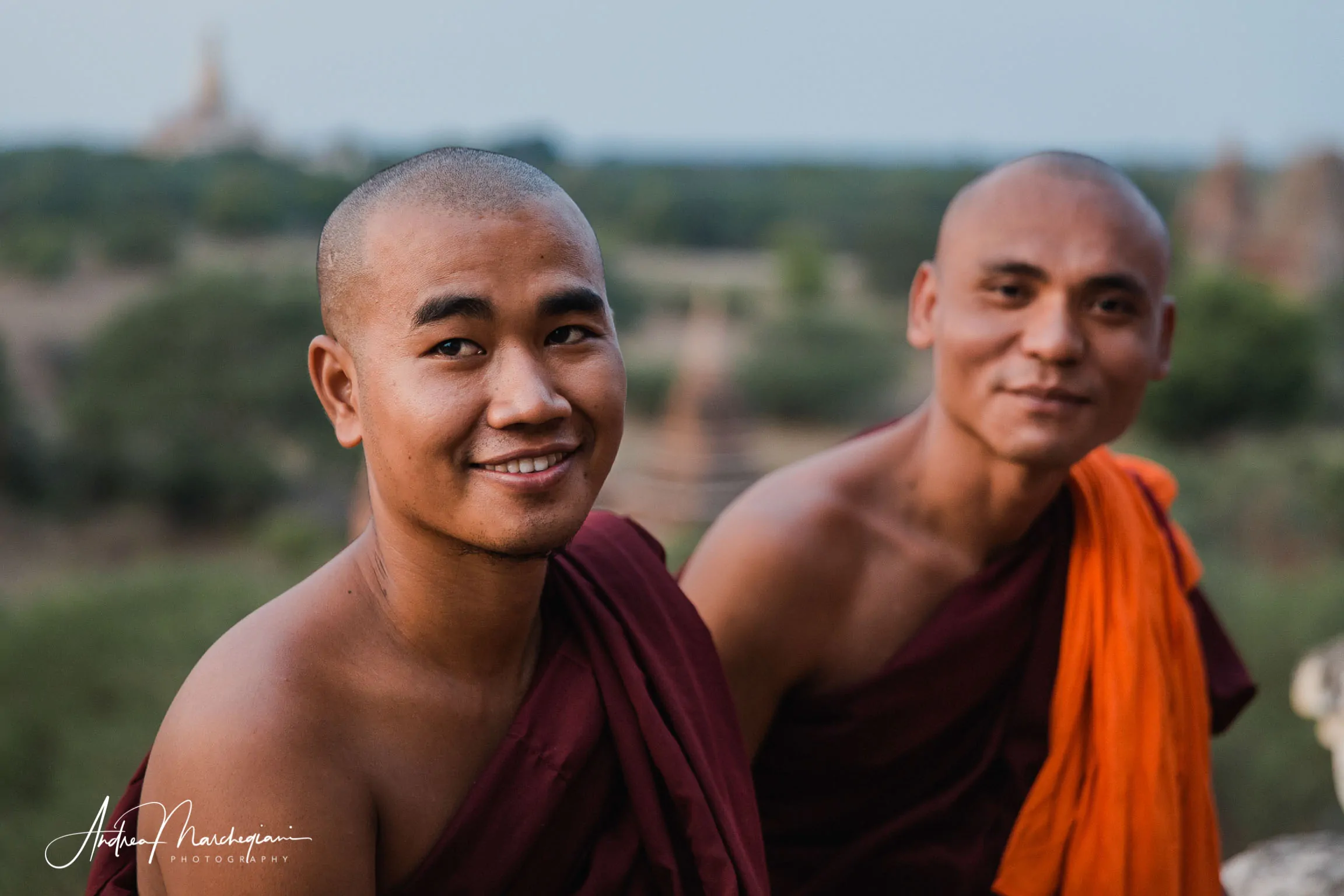

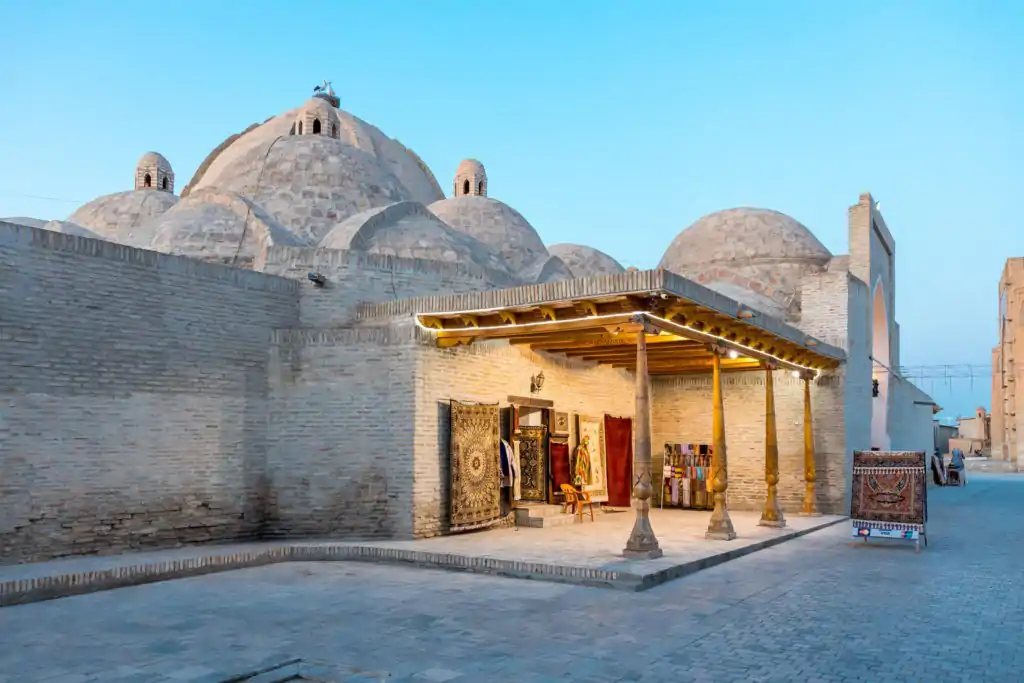

2 Comments
I live here and the article is far away from describing the real situation. This is nonsense: “… earn the same amount … In return, they receive food, accommodation, electricity, education and health service. Personal expenses are recorded on a card, so the circulation of money is completely absent.”
In an ideal society perhaps… In a capitalistic society, into which Auroville has been turned by some gang of greedy people, we pay for most things and there is much cash circulation.
Better read Auroville Files to know what’s going on and what the residents are fighting for – a just society free of privilleges and “local elites”.
The information I posted is taken from the Auroville official website and several articles from many international newspapers. I am sorry to read your experience in Auroville is disappointing, I will definitely look for different sides of the story.